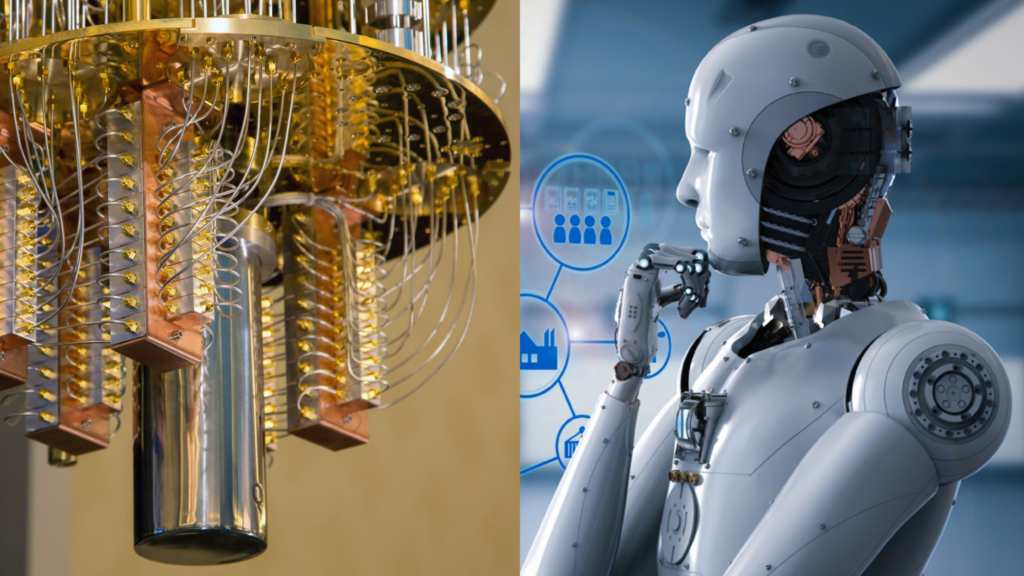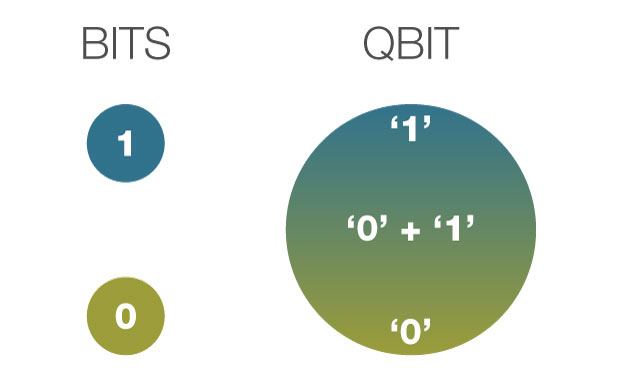Unlocking Tomorrow: The Marriage of AI and Quantum Computing
The Future of AI with Quantum Computing

The Future of Artificial Intelligence (AI) with Quantum Computing is a topic that has been generating immense excitement and curiosity. As technology advances at an unprecedented pace, the convergence of AI and Quantum Computing has the potential to revolutionize various industries and transform our lives. In this article, we will explore the implications, possibilities, and challenges presented by this revolutionary combination.
What is Artificial Intelligence (AI)?
AI refers to the simulation of human intelligence in machines that are programmed to learn and reason like humans. It involves the development of algorithms that enable computers to perform tasks such as speech recognition, decision-making, problem-solving, and more. AI has already made significant strides in areas like healthcare, finance, and autonomous vehicles.
Understanding Quantum Computing
Quantum Computing is a cutting-edge technology that utilizes the principles of quantum mechanics to process information differently than classical computers. Traditional computers use bits that represent either 0 or 1, while quantum computers use quantum bits or qubits, which can represent 0, 1, or both simultaneously. This property allows quantum computers to perform complex calculations exponentially faster than classical computers.

The Synergy of AI and Quantum Computing
The synergy of AI and Quantum Computing holds immense promise. Quantum computing can significantly enhance AI’s capabilities, particularly in terms of processing large volumes of data and optimizing complex algorithms. By leveraging quantum parallelism and entanglement, AI systems can reach unprecedented levels of performance and efficiency.
Advancements in AI Due to Quantum Computing
AI has already made significant advancements in various fields, but quantum computing can take it even further. Quantum machine learning algorithms can process vast datasets more efficiently, leading to breakthroughs in drug discovery, weather forecasting, and materials science. Quantum AI could also improve natural language processing, making virtual assistants and chatbots more intuitive and context-aware.
Potential Applications of AI and Quantum Computing
- The combination of AI and Quantum Computing opens up a wide array of potential applications. Autonomous vehicles could achieve better real-time decision-making, enhancing road safety and efficiency.
- AI-powered quantum sensors could revolutionize fields like geology, climate science, and environmental monitoring.
- Furthermore, finance and logistics sectors could benefit from optimized algorithms for portfolio management and route planning.
Addressing Challenges and Limitations
As promising as it sounds, there are challenges to overcome.
One major hurdle is the delicate nature of qubits, which are susceptible to errors due to decoherence and noise. Researchers are actively working on error correction techniques to make quantum computing more reliable. Additionally, the high costs and technical complexity associated with building and maintaining quantum computers pose practical obstacles.
Ethics and Security Concerns
With great technological power comes great responsibility. As AI and Quantum Computing advance, ethical considerations become paramount. There are concerns about AI-generated content being used for misinformation or deepfake technology. Ensuring the safe and secure use of quantum computing is crucial, as it could potentially break current cryptographic systems, leading to security risks.
Conclusion
The future of AI with Quantum Computing is undoubtedly exciting, holding transformative potential across numerous domains. As researchers and developers continue to unlock the full capabilities of this synergistic duo, we can expect groundbreaking advancements in AI applications, quantum simulations, and problem-solving. However, it’s essential to proceed with caution and address the ethical and security implications that come with such powerful technologies.
FAQs
- Is quantum computing better than classical computing for AI?
Quantum computing can outperform classical computing in specific AI tasks that involve massive datasets and complex algorithms, but it’s not superior in all scenarios. - Will quantum AI replace human intelligence?
No, quantum AI is a tool to augment human intelligence rather than replace it. It will assist in solving complex problems and generating valuable insights. - Can quantum AI help with climate change issues?
Yes, quantum AI can aid in climate modeling and optimization, contributing to better understanding and addressing climate change challenges. - Are there any quantum AI-powered consumer products available now?
Currently, most quantum AI applications are in research and development phases. Consumer-ready quantum AI products are still in the early stages. - What are the privacy concerns related to quantum AI?
Quantum AI’s enhanced processing capabilities could raise concerns about data privacy and security, necessitating robust encryption methods.
***
Machine Learning books from this Author:


